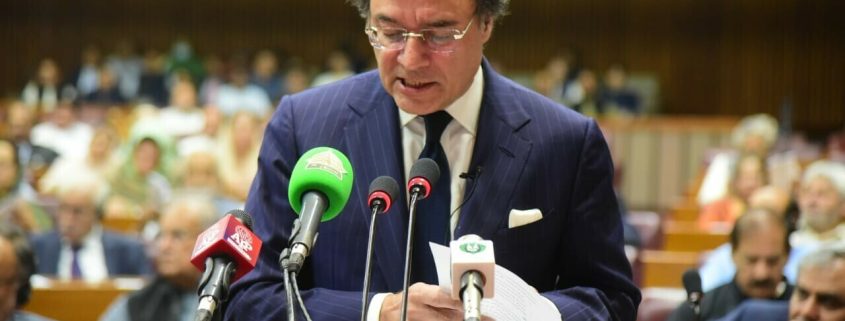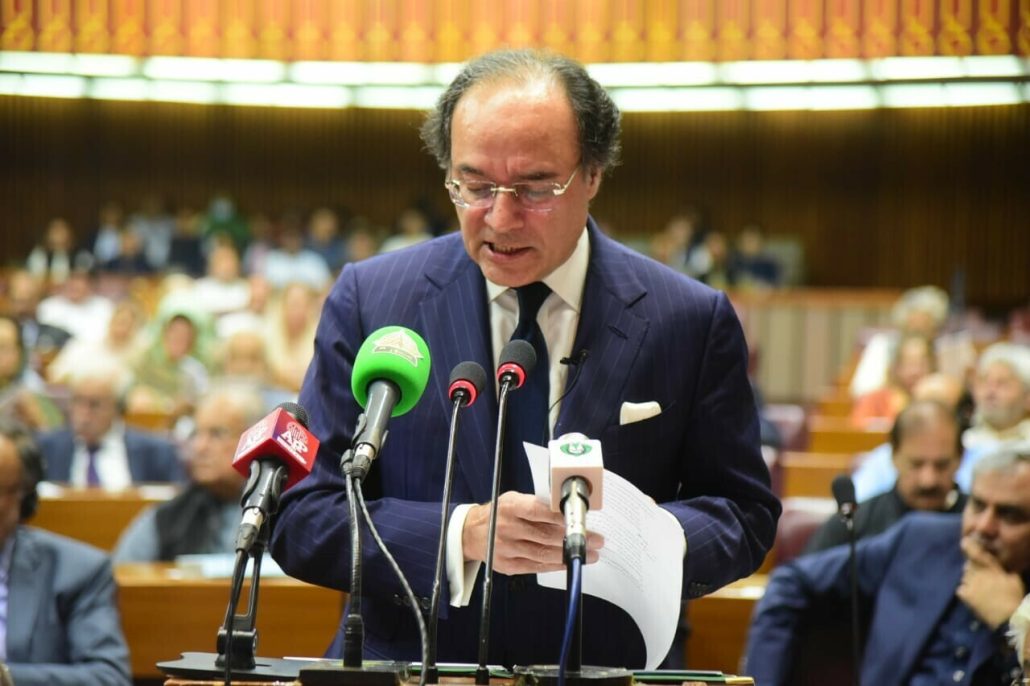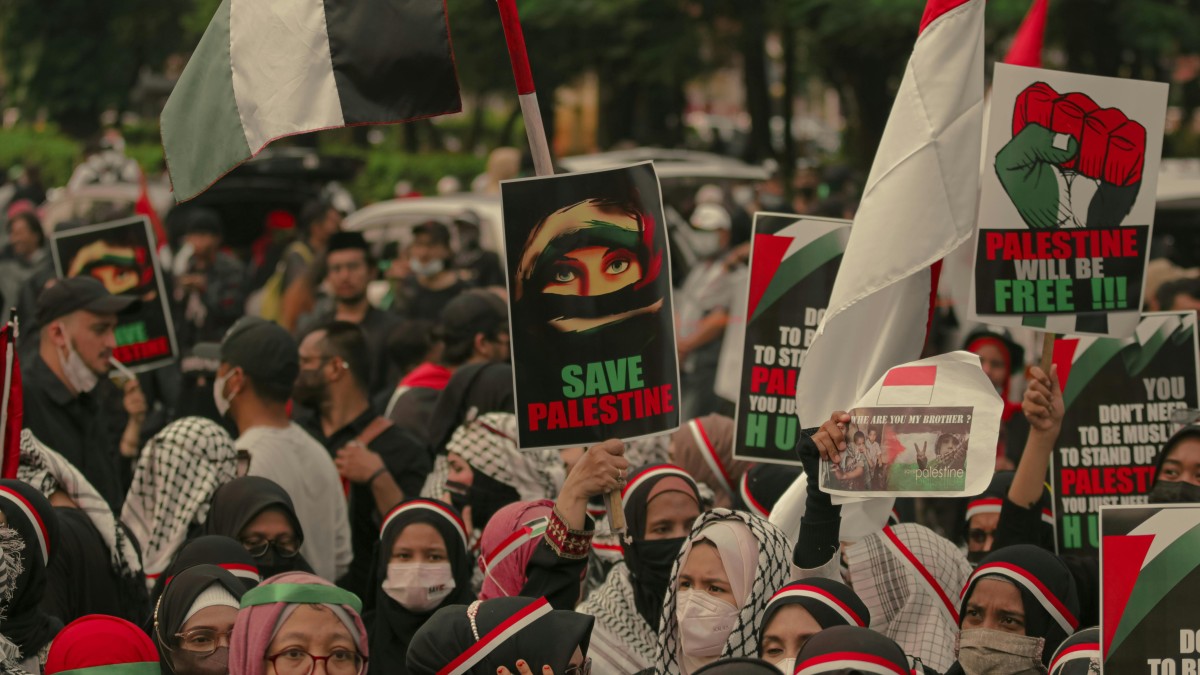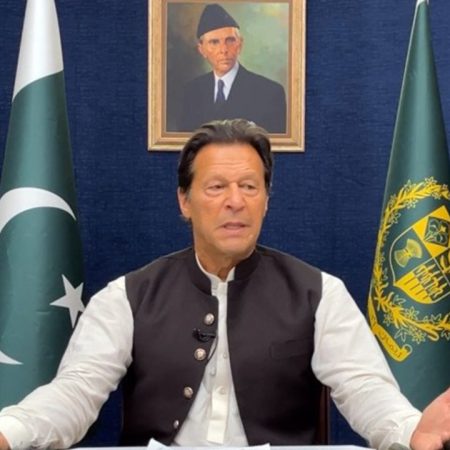Pakistan Fiscal Year 2024-25 Budget
By Mahvish Akhtar
Pakistan’s economy has been suffering since the COVID-19 pandemic like the rest of the world,
but Pakistan’s recovery time has been lagging much further than the under-developed and
developing world.
There are many reasons, from being unprepared for disasters to corruption in the political
spheres, to high levels of illiteracy in the country. We can blame the economic problems on not
having enough resources if we want to be completely naïve and assume that our soil and land are
not rich with potential.
Other risks include higher interest rates, currency depreciation, greater subsidy requirements,
challenging revenue targets, lower than estimated economic growth, unexpected climatic or
natural disasters, and poor performance of State-Owned Entities (SOEs).
Pakistan unveiled the much-awaited Rs18.877 trillion ($67.76 billion) federal budget for the
fiscal year 2024-25, Wednesday, June 13 th, 2024. This year’s budget is tax-heavy. Islamabad is
trying to negotiate a deal with the IMF to avoid an economic crisis.
Prime Minister Shahbaz Sharif’s coalition government presented the FY25 budget targeting a
headline deficit of 5.9% of GDP and a 2.0% primary surplus, compared to FY23-24 estimates of
7.4% and 0.4%, respectively.
The budget categorizes many extensive tax increases and significant fiscal tax growths at the
provincial level. FY25 also aims for a growth rate of 3.6% in FY25, up from 2.4% in FY24.
However, Provincial governments and the public alike are having a difficult time accepting this
budget due to the difficulty the new coalition government faced right after it took control. The
economy was in shambles, and they were not able to account for all the time and money lost.
There was no explanation for all the delays in the election, the unemployment, and the unstable
political situation. The new government did not provide any explanation, neither did it provide
any resolutions.
The last two years have been relatively strong in agriculture and gold exports. Gold has risen to
$15.1 billion, covering over two months of external payments, up from $9.6 billion at the end of
FY23. Pakistan still needs an estimated $20 billion annually for FY24–FY25, including maturing
bilateral debt expected to be rolled over.
This exposes Pakistan to external funding conditions and potential policy missteps. Pakistan’s
'CCC' rating, reaffirmed in December 2023, reflects the high external funding risks amid
substantial medium-term financing requirements.
The government of Sindh has allocated a budget of Rs 3.06 trillion. A third of it is for
development expenses. Outdoing the salary hike of the federal government, Sindh offers salary
increments of up to 30% to its provincial government employees.
About Rs3.74bn has been earmarked to contribute towards 483 ‘smart police stations’ across the
province and Rs3.5bn for cameras in Karachi for increased surveillance. A further Rs1 billion
has been allocated for a ‘state of the art’ command and control center. The government has set a
mere 2% annual growth target, a drastic reduction from the 6.25% FY23.
Similarly, the allocation for the Minister’s Youth Business and Agriculture Loan Schemes was
sharply reduced from Rs. 30 billion to Rs.8.6 billion. The grant for the concessional credit for
small farmers was withdrawn. The hike in electricity rates for tube wells and fertilizers for plants
due to drastic subsidiary cuts, from Rs25 billion to Rs3 billion will leave farmers helpless.
The Sindh provincial chief minister and finance minister Syed Murad Ali Shah, said in his
budget announcement speech that the budget focuses on social protection for the impoverished
and rehabilitation post-floods. It remains true to the image of the party that was made famous
through its “roti, kapra, aur makaan” motto.
Punjab Provincial government presented its FY25 Budget of Rs 842 billion under the Annual
Development Program (ADP). Punjab Finance Minister Mujtaba Shuja-Ur-Rahman announced
that his government has allocated Rs. 603 billion in salary payments. Rs. 451 billion in pension
payments and roughly Rs. 857 billion for local government. He also added that more than Rs.
669 billion was reserved for education which is 13% more than FY23.
On the other hand, Khyber Pakhtunkhwa’s Chief Minister presented the budget ahead of
schedule. He said the document is called, “historical welfare relief budget for the people of the
province.” Chief Minister Gandapur said that after the merger of tribal areas in KP, the
provincial government should get the asked amount each year. However, the province has only
received Rs. 123 billion so far and is facing a deficit of Rs. 139 billion. He also added that the
province has increased its revenue significantly on its own. “Our federal government is focusing
more on expanding the tax net than on taxes,” he said.
Under the Khyber Pakhtunkhwa Revenue Authority (KPRA), a 10% increase in both salaries and
pensions of the provincial government employees while raising the minimum wage to Rs.36,000
from 32,000. A total of Rs. 362.68 billion was allotted to education, 13% higher than FY23.
Similarly, Rs232.8 billion was proposed for the health sector, 13% higher than last year also to
maintain peace in the province, Rs140.62 billion was proposed for law and order,12% higher
than the previous year.
Under the federal Public Sector Development Program (PSDP) Baluchistan Provincial
government will be allocated Rs. 58 billion in the upcoming fiscal year. Salaries will be raised by
up to 25%, pensions by 15%, and according to Minister Zahoor Ahmed Baludi, the provincial
government has significantly cut unnecessary schemes through a “major surgery” in the PSDP,
focusing the upcoming budget on public necessities and development. Free scholarship programs
for children of martyrs. Rs. 17 billion have been allotted for the Quetta-Karachi highway and
many other projects like it.
While the numbers look good on paper, we have to keep in mind that all of these funds have to
come from somewhere. If Pakistan’s government had the finances, we wouldn’t be in the kind of
economic crisis that we are facing right now.
The kind of surplus we are showing at the end of the year on these sheets and the percentage of
growth with such ease is not so easily gained for a developing country that’s facing the type of
hurdles that Pakistan is facing. So, to minimize the hurdles Islamabad plans to hike up taxes and
increase living costs.
In a written statement of fiscal risks submitted to parliament, required under the Public Finance
Management Act 2019, Finance Minister Muhammad Aurangzeb and Secretary Imdad Ullah
Bosal said that a combination of three risks — higher than the estimated interest rate, lower than
non-tax revenue collection and higher subsidies — had the most significant impact on fiscal
variables across the board.
“The combination of reduced revenues, increased expenditure on subsidies, and potential
financing needs due to higher interest rates lead to substantial fiscal deficit and higher debt
stock,” it said, underscoring the interconnectedness of fiscal policy and the need for
comprehensive approaches to address fiscal challenges.”
Islamabad Industrial Association President Nasir M. Qureshi said the finance minister was a
banker, but he did not know that “industries do not make money by lending money” like banks.
He also added that “people should be encouraged to learn skills and SME (small and medium
enterprises) sector should be promoted to employ beneficiaries of such aid programs.”
Restaurants, Caterers, and Bakers Association President Chaudhry Farooq said that the restaurant
industry is not happy with the budget either. A sales tax of 10% on the local supply of vermicelli,
bread rolls, rusk, poultry feed, cattle feed, sunflower meal, rapeseed meal, and canola meal
would make chicken and other food items expensive.
Chaudhry Farooq thinks that high prices will eventually result in quality deterioration, which will
have a serious impact on the health of Pakistan.
Ajmal Baloch heads the All Pakistan Anjuman-i-Tajran (All Trade Organization of Pakistan), he
predicts that “the consumers will spend less and less and the traders will also suffer due to that;
eventually, people will be forced to buy thrift clothes, shoes, and other items – this is where the
government wants to take its citizens.”
The Pakistan finance minister also proposed an 18% sales tax on mobile phones and increased
import duties on luxury cars and certain goods. If the proposal is approved, the call rates for the
non-filers will be increased by 75% from July 2024 in Pakistan.
The government also proposed a 33% hike in the levy on petrol and diesel.





















2024
2,605 views
views
0
comments